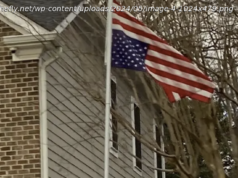On Saturday, in a result that stunned most analysts, voters re-elected the conservative coalition that has long resisted plans to sharply cut down on carbon emissions and coal.
SYDNEY, Australia — The polls said this would be Australia’s climate change election, when voters confronted harsh reality and elected leaders who would tackle the problem.
And in some districts, it was true: Tony Abbott, the former prime minister who stymied climate policy for years, lost to an independent who campaigned on the issue. A few other new candidates prioritizing climate change also won.
But over all, Australians shrugged off the warming seas killing the Great Barrier Reef and the extreme drought punishing farmers. On Saturday, in a result that stunned most analysts, they re-elected the conservative coalition that has long resisted plans to sharply cut down on carbon emissions and coal.
What it could mean is that the world’s climate wars — already raging for years — are likely to intensify. Left-leaning candidates elsewhere, like Prime Minister Justin Trudeau of Canada, may learn to avoid making climate a campaign issue, while here in Australia, conservatives face more enraged opponents and a more divided public.
“There has to be a reckoning within the coalition about where they stand,” said Amanda McKenzie, chief executive of the Climate Council, an Australian nonprofit. “I think it’s increasingly difficult for them to maintain a position where they don’t talk about climate change.”
Even for skeptics, the effects of climate change are becoming harder to deny. Australia just experienced its hottest summer on record. The country’s tropics are spreading south, bringing storms and mosquito-borne illnesses like dengue fever to places unprepared for such problems, while water shortages have led to major fish die-offs in drying rivers.
“This is all playing out in real time, right now,” said Joëlle Gergis, an award-winning climate scientist and writer from the Australian National University. “We are one of the most vulnerable nations in the developed world when it comes to climate change.”
And yet the path to victory for Scott Morrison, the incumbent prime minister, will make agreeing on a response more difficult.
Домой
United States
USA — Science It Was Supposed to Be Australia’s Climate Change Election. What Happened?






